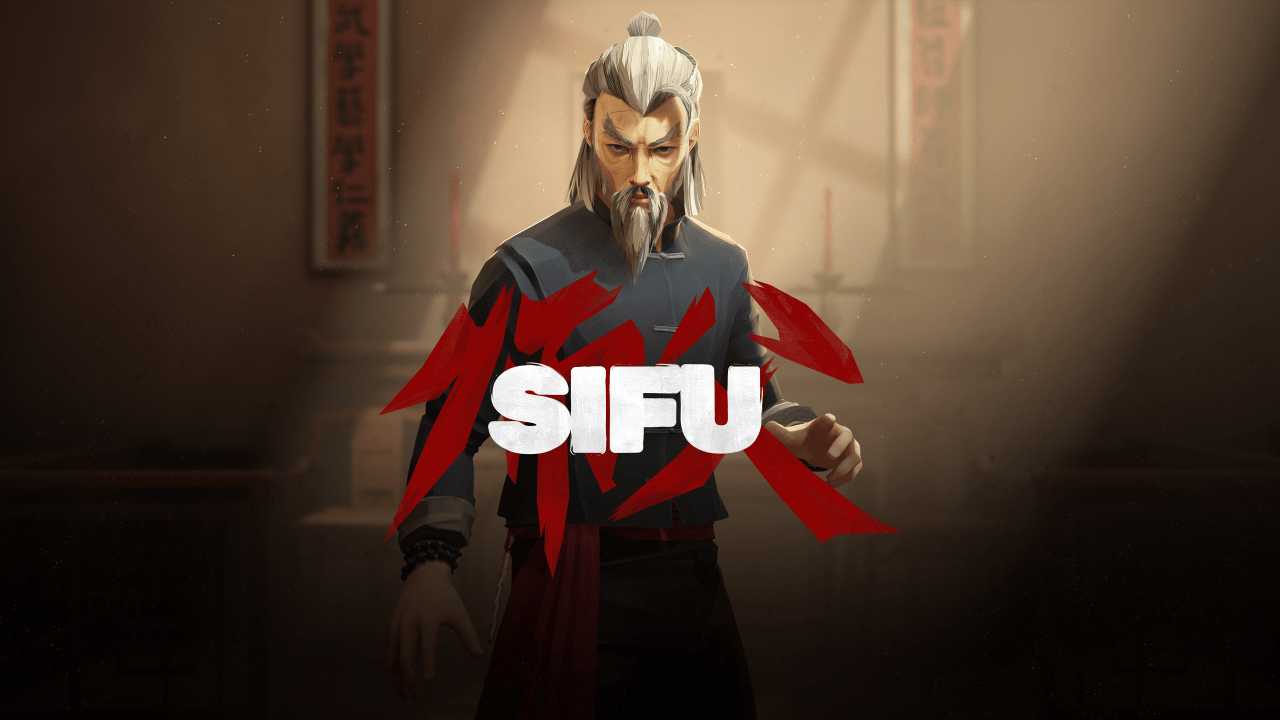My first impression of Sifu after about fifteen minutes or so went a little something like this: Sifu good. As I spent more time with it, and was able to better understand its mechanics and systems, I realized that Sifu is more than just ‘good’. Sifu is phenomenal. Having played an entire gamut of roguelike titles, from Enter the Gungeon and Rogue Legacy, to more recent entries to the genre like Hades and Returnal, I thought I was marginally prepared for what Sifu had to offer; I could not have been more wrong. Sifu is intense. Sifu is innovative. And Sifu is a guaranteed contender for Game of the Year.

Sifu’s premise is a simple one – vengeance. Your family is dead and now it is up to you to locate the killers and take them out one by one. When it comes to storytelling, nothing quite does it like an old fashioned revenge story. It’s straightforward and allows you to get right to the killing. Sifu knows this and doesn’t spend a lot of time breaking its pace with plot. The goal is simple: to work your way through your kill list and pummel any and every face that stands in your way. It’s story is focused, effective, and allows the really good bits – the combat – to shine as intended.
Sifu’s hand-to-hand combat is incredibly intense and demands every bit of precision and patience as mastering actual kung fu. You cannot button mash your way to victory and to be quite honest the tutorial doesn’t do much to explain it. If you are familiar with developer Sloclap’s previous title – an online melee combat game by the name of Absolover, than you know that there is going to be a bit of learning curve here. Opponents in Sifu are relentless and plentiful, and will chase you to the ends of the earth to beat the crap out of you. Early on you will struggle to get a comfortable grip around your moveset – a massive variety of offense and defensive techniques ranging from dodging, swaying, and parrying, to strong and light attacks, pushbacks, charged attacks, and even combos and ‘focus’ abilities. It can get a bit overwhelming, especially considering that your environment plays a huge role in combat as well. Don’t let those early deaths deter you though, because its about to get really, really good.

Once the elements of combat click though, and you start recognizing enemy patterns and knowing when you should be swaying or dodging certain attacks as opposed to trying to constantly parry (a mistake I learned early on), Sifu becomes a game that you cannot put down. The satisfaction you get from perfectly avoiding an opponent’s punches and kicks and then raining blows down upon them is indescribable. Gameplay operates on pure adrenaline as the sensation you get from tossing a bottle at someone’s face and following it up with a series of swift punches and kicks (or better yet a few swipes with a lead pipe) builds with every enemy encounter, and reaches an absolute boiling point by the time you face the main boss at the end of every level. It’s all heightened by the DualSense controller as its Sifu’s haptic feedback makes the hits feel more impactful. And you will never grow tired of hearing the sweet sounds of glass shattering coming out of your controller. Fortunately – or unfortunately depending on how you look at it – you’ll have plenty of practice with your moves and watching yourself become a kung fu master as Sifu is a roguelike, and death is all but inevitable.

Death isn’t as punishing as it is in most roguelike titles. Death in Sifu is more like an opportunity, a chance to get back up again and to come back a bit stronger and hopefully a touch wiser. Instead of sending you right back to the beginning of a level upon death, Sifu has a clever aging system. With every death, you can get right up and continue exactly from where you left off, health restored and all. The catch – however – is that once you die, a death counter is activated and the aging process begins. The first time you die, you’ll age by one year. The second time, by two years, the third by three, and so on. Once you cross the age of 70 (complete with visual changes to the main character along the way), you can no longer resurrect yourself, meaning that your next death equals game over. There is no way to reverse the aging process either, no relics to make you younger, or fountains of youth to restore your good looks here. You can counter the death counter so to speak and lower the number of years you age with each death by using one of the available shrines or by beating specific enemies such as the chapter bosses. It’s a clever approach to the roguelike standard of simply trying to get as far as you can without dying and being kicked back to the first level. Speaking of progression…
Progression – and more importantly how it’s handled – can be a make or break scenario for any roguelike. While challenge is key to the experience, you also don’t want to feel like all of your hard work was for nothing, that regardless of death you are able to take something with you to make the next go around a bit more manageable. In Sifu, you can unlock a number of moves and skills via your Skill Tree – which is depicted as an actual, literal tree in your main hub. Unlocking these moves requires experience. If you reach a game over though, your unlocked moves reset at the start of every new run – unless you permanently unlock them. By purchasing an upgrade five times, you can make that upgrade permanent which can go a long way early on in keeping your age as low as possible. Another way Sifu handles progression is with the way it keeps track of level completion. Once you’ve beaten a level you won’t ever have to repeat it even if you reach a game over. If you are on a good run and then fail at Level 4 for example, you can always start fresh from the beginning of Level 4 without having to worry about the previous levels. Now, can you sense a catch coming, cause you know there is going to be a catch, right? The catch with this system – as amazing as it sounds – is that your starting age will always be whatever it was at the end of the previous level. So say you finish Level 1 at the age of 56, you will always start Level 2 at the 56. There is a way to remedy this though. You always have the option of replaying the previous level and not sucking so much in hopes of completing it with a lower age. The more you progress the more you’ll find yourself replaying old levels and completing them with a lower age and permanently unlocking abilities.

Sifu does not pull any punches. As of this writing I am stuck on the last boss and I’m not sure when I’ll see the credits roll. But if there is one other thing that Sifu is, aside from revenge and from being a remarkable roguelike, is that it’s about resolve. It instill a ‘never give up’ attitude that begins from the moment you get back up from your very first defeat and carries you all the way throughout.
For it’s $40 price tag, Sifu offers a fresh take on the roguelike genre. Expect to play this game well into the late hours of the night as you slowly evolve into the ultimate kung fu master.






